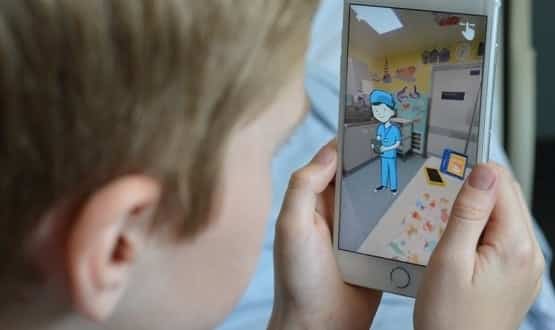NHS virtual wards to treat thousands of patients with heart failure at home
- 26 October 2023

New NHS clinical guidance published this week asks local health systems to expand their use of virtual wards to include heart failure patients who often spend a lot of time in hospital and can now get specialist care from the comfort of their own homes.
Around 200,000 people a year are diagnosed with heart failure, and people living with the long-term condition requiring significant input from NHS services make up 5% of all emergency hospital admissions in the UK attributed to the condition.
The new service offer comes after the NHS hit its target of delivering 10,000 virtual ward beds last month, with more than 240,000 patients treated successfully on virtual wards since April 2022.
The innovative hospital at home service already provides treatment for respiratory issues and frailty and has been shown to reduce recovery times, as well as easing pressure on hospital beds.
Patients are monitored around the clock by highly skilled clinical staff through home or virtual visits, and staff can use technology like apps, wearables, and other medical devices, to continually monitor patients’ vital signs.
The team can also provide blood tests, prescribe medication, and administer fluids via an intravenous drip. The scheme not only speeds up recovery times but frees hospital beds for those who need inpatient care.
A “personalised service”
There are around a dozen heart failure virtual wards up and running, and the Liverpool University Hospitals NHS Foundation Trust (LUHFT) and Mersey Care NHS Foundation Trust (MCFT) are already taking part in the scheme.
Together the two trusts have supported more than 500 people on virtual wards including Colette Melia, 66, who said: “It’s almost like having a doctor on tap” and said treatment from a virtual ward is “a really personalised service”.
Colette had a fluid overload due to damage to her heart and also has Crohn’s disease which made it difficult to treat her acute heart failure.
She was treated on an acute heart failure virtual ward and the team reviewed her every day over the telephone or by video call. Tech devices provided them with ECG readings, her vital signs and she was able to digitally record any symptoms she may be having.
People with heart failure often have other conditions too, which means they can spend a lot of time in hospital.
On being able to be treated at home, Colette said: “It gives you your life back”.
Professor Nick Linker, national clinical director for heart disease at NHS England, said: “It’s estimated there are over 900,000 people in the UK living with heart failure, many of whom will require specialist support and management if their condition deteriorates.
“The expansion of virtual wards for eligible heart failure patients will mean that where clinically appropriate, more people will be able to receive the care and treatment they need from the convenience of their own home and reduce the need for hospital admissions.”
Professor Sir Stephen Powis, NHS national medical director, added: “The expansion has been implemented at a key time just before winter, when there will be a lot more pressure on our hospitals and will free up beds for those who need them the most.”




